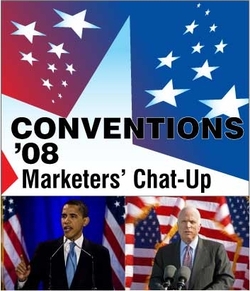Too many choices paralyze buyers
July 8, 2009
 When television was first introduced, there were 3 black and white channels. Today, 500+. Many in my baby boomer (I would like to point out that I am on the very tail end of that demographic!) demo grew up reveling in the idea of many choices because it was new territory.
When television was first introduced, there were 3 black and white channels. Today, 500+. Many in my baby boomer (I would like to point out that I am on the very tail end of that demographic!) demo grew up reveling in the idea of many choices because it was new territory.
But fast forward to today and you see those same baby boomers being overwhelmed at the array of decisions (based on choices) they have to make every day.
Walk into any mobile phone store and just count the number of phones available. It's staggering. Then, you have to figure out what each one does…and why it matters to you.
No wonder it is often easier for us to check out, than to check all the options.
Consumer research shows that the American consumer is suffering from choice fatigue. A study (by Sheena S. Iyengar from Columbia University and Mark R. Lepper from Stanford called "When Choice is Demotivating") found too many choices actually frustrated shoppers. People were offered either 30 choices or 6 choices of jam and then given coupons to purchase what they sampled.
Of those that had the opportunity to sample 30 only 3% made a purchase, while of those given 6 choices ten times as many or 30% made a purchase. That's a huge difference.
To better understand how we all react when faced with too many choices watch this brilliant TED talk by Barry Schwartz - author of The Paradox of Choice: Why More Is Less. In this talk, he explains how and why the too many choices are paralyzing us.
So what does that mean for you and me?
It means that there is power in simple. Our customers are time-starved and information-saturated. Make it easy. If you have to give your customers a lot of choices — group or organize them in a way that allows their brain to sift through the options more logically and quicker.
It also means that we need to recognize that having more choices doesn't necessarily give us an edge over the competition.
If you are going to offer lots of variety — be sure you have a good reason for doing so, and be sure you help your consumers navigate through those choices.
Or they might not choose you at all.
Photo courtesy of Shutterstock.com
More
![Reblog this post [with Zemanta]](http://img.zemanta.com/reblog_e.png?x-id=d248db0a-38e4-451f-821f-512e61fefc4e)

![Reblog this post [with Zemanta]](http://img.zemanta.com/reblog_e.png?x-id=e6e87d6f-6244-47e3-925d-4d8ef23f5d92)

![Reblog this post [with Zemanta]](http://img.zemanta.com/reblog_e.png?x-id=cb87d6d9-9db4-4a3b-a72c-e1fb9fcf5bca)

![Reblog this post [with Zemanta]](http://img.zemanta.com/reblog_e.png?x-id=f8efc8fe-20ef-4ef2-833a-b2d415b0d03d)

![Reblog this post [with Zemanta]](http://img.zemanta.com/reblog_e.png?x-id=8bb25e21-a661-45cd-8218-31659966c1e4)



